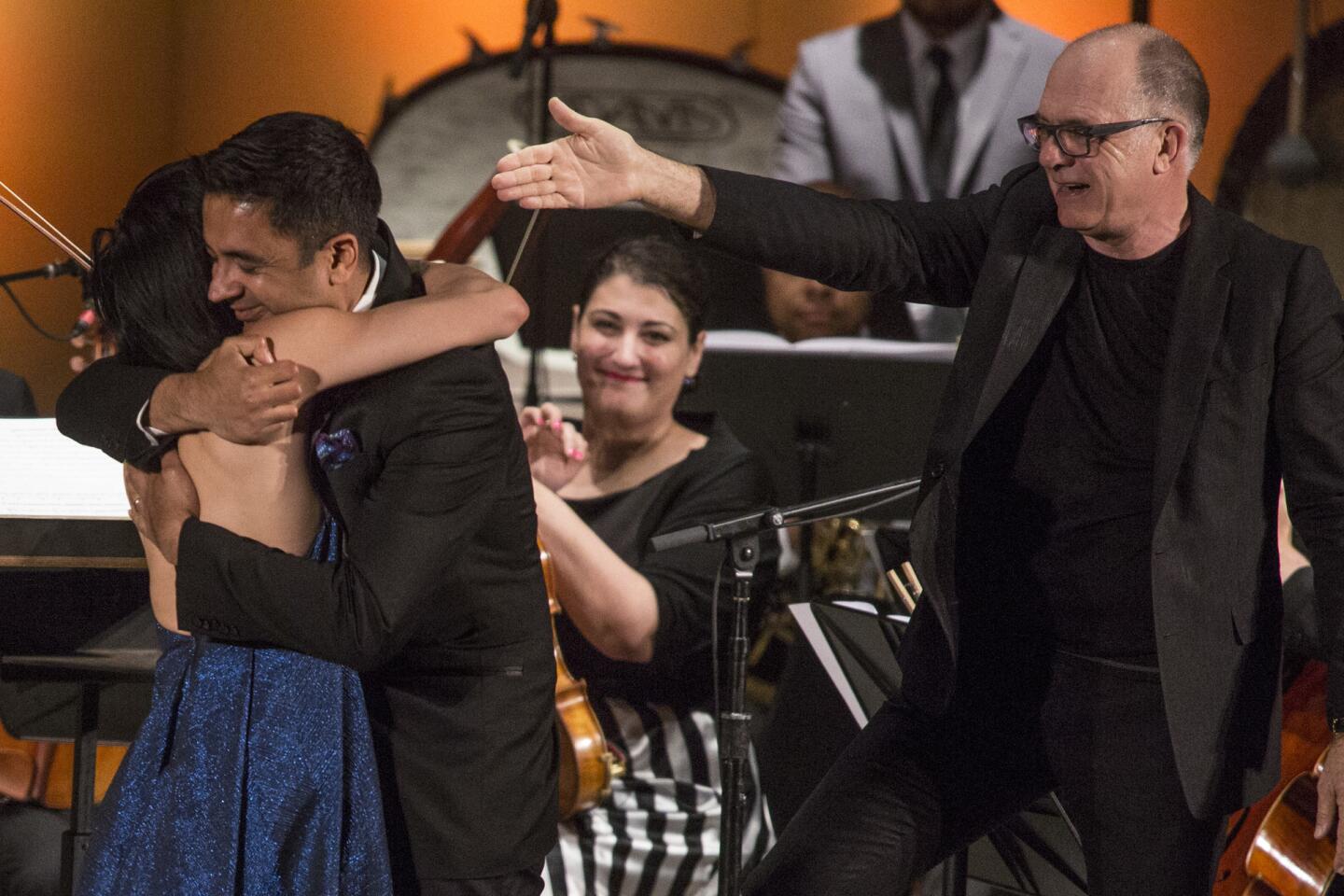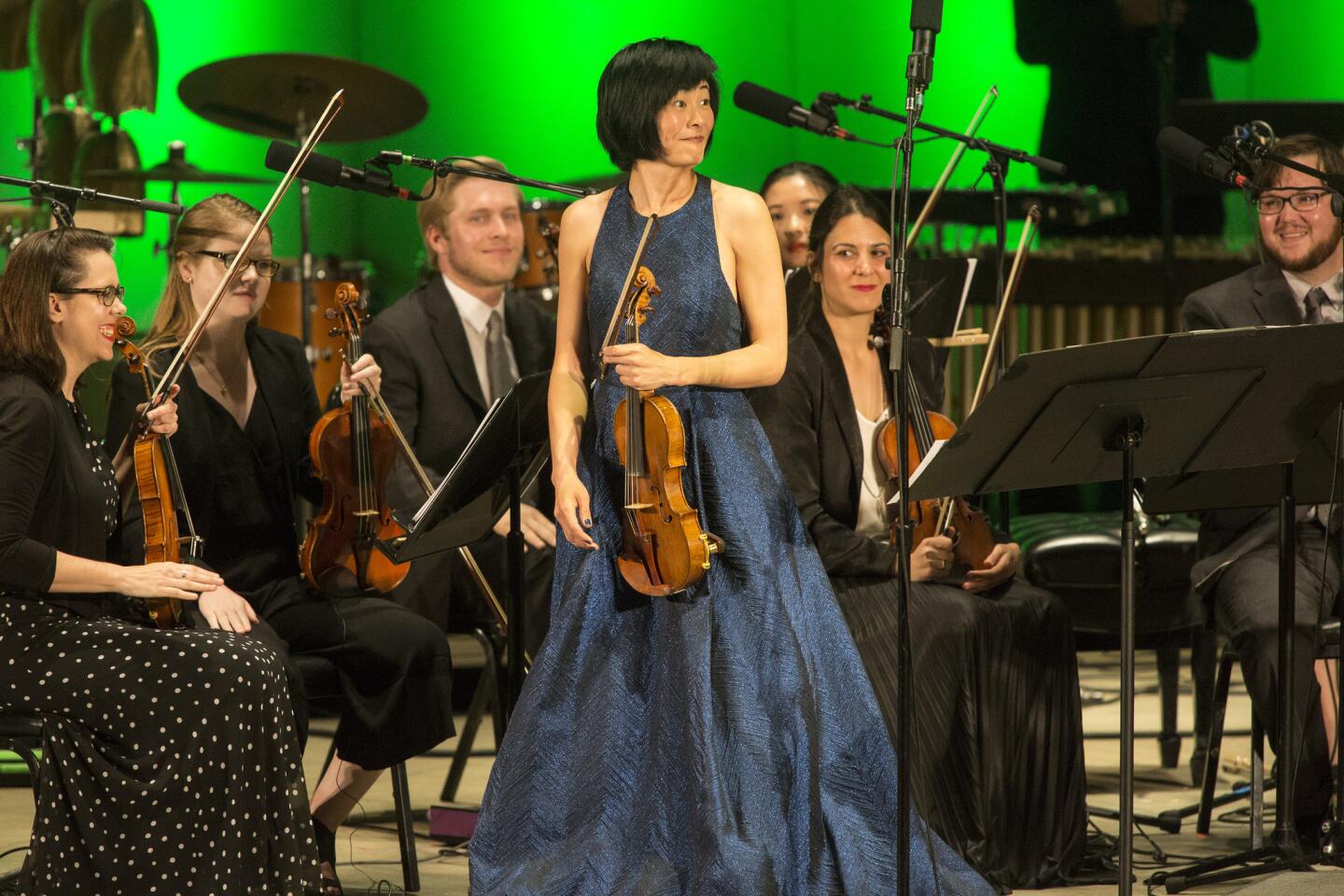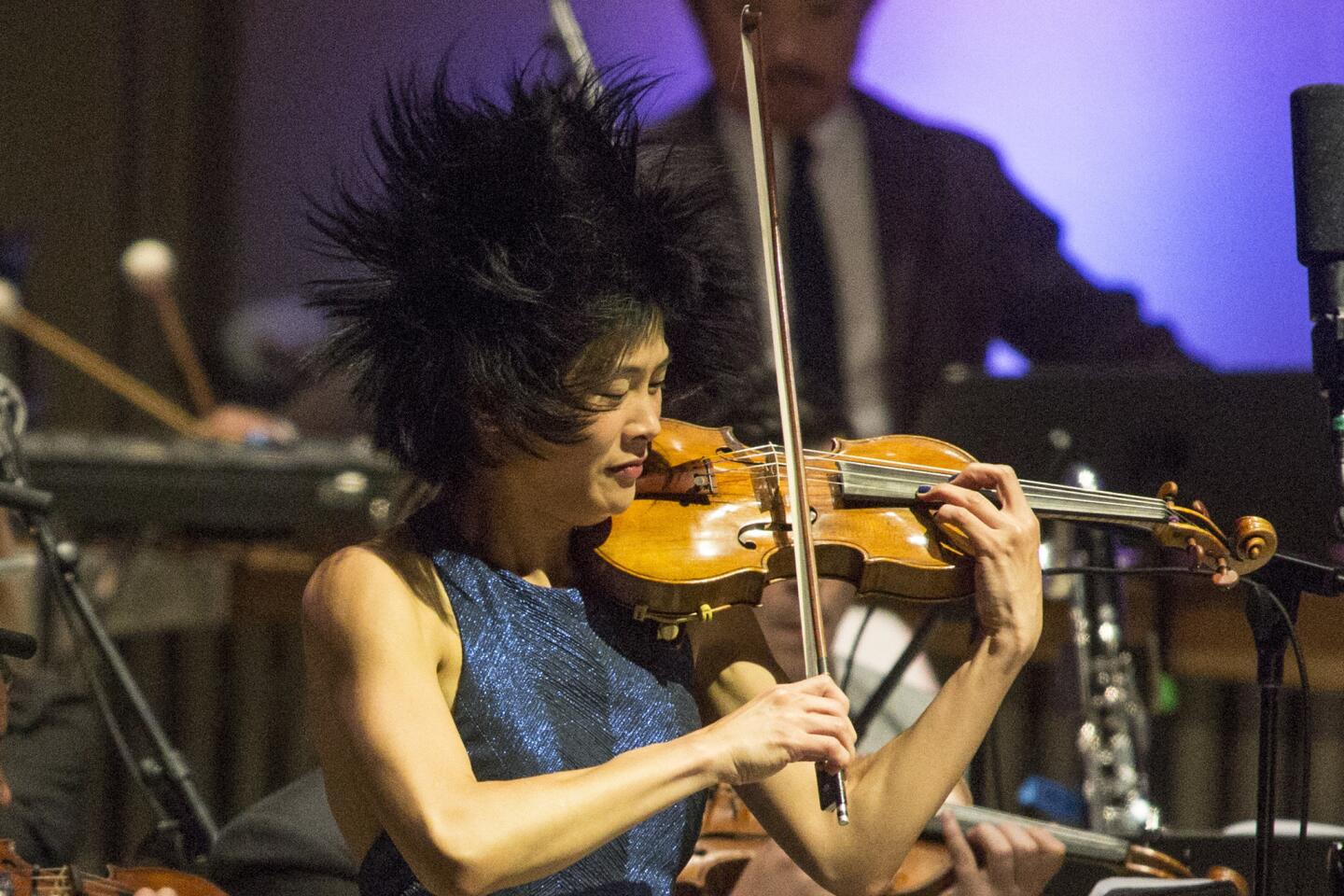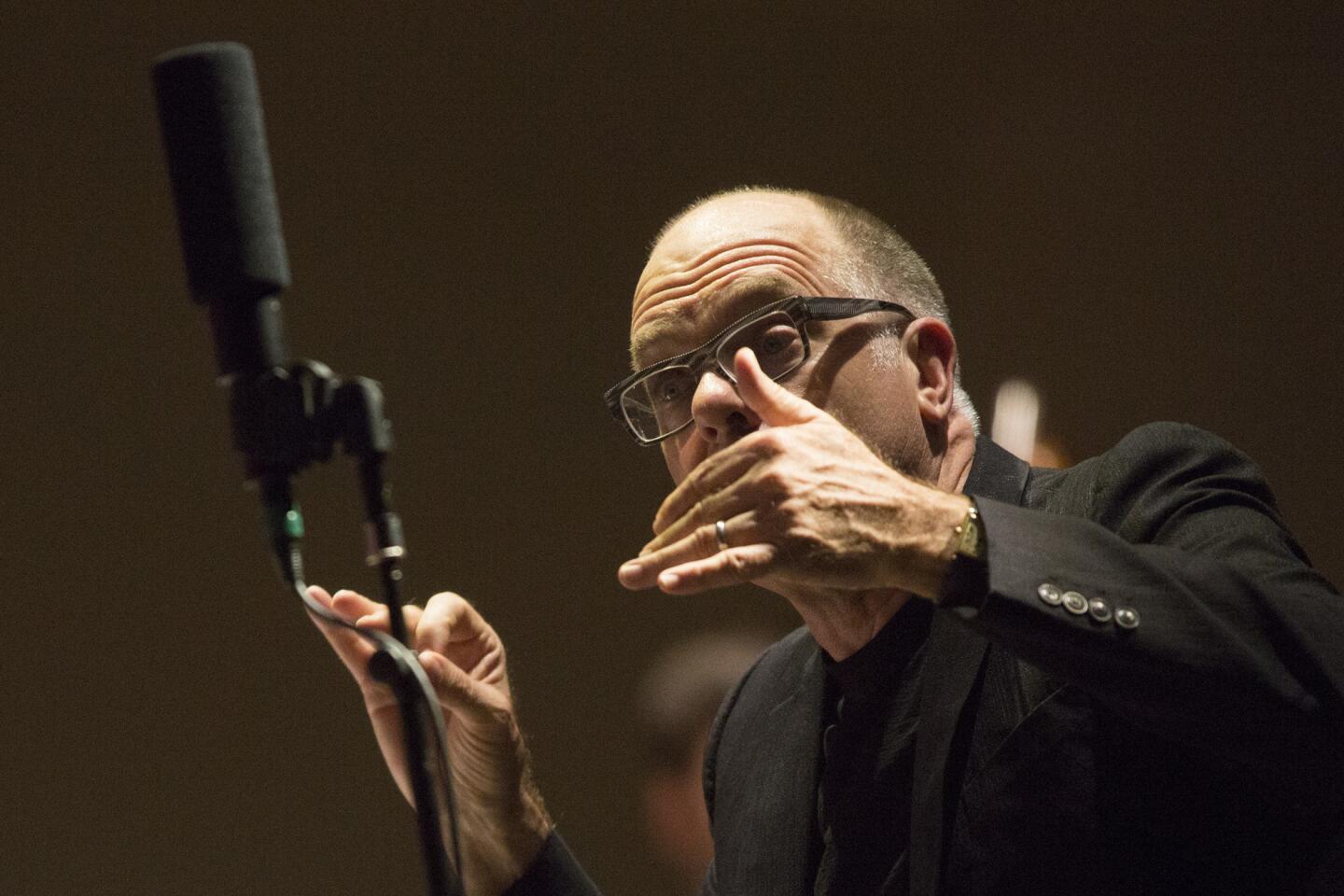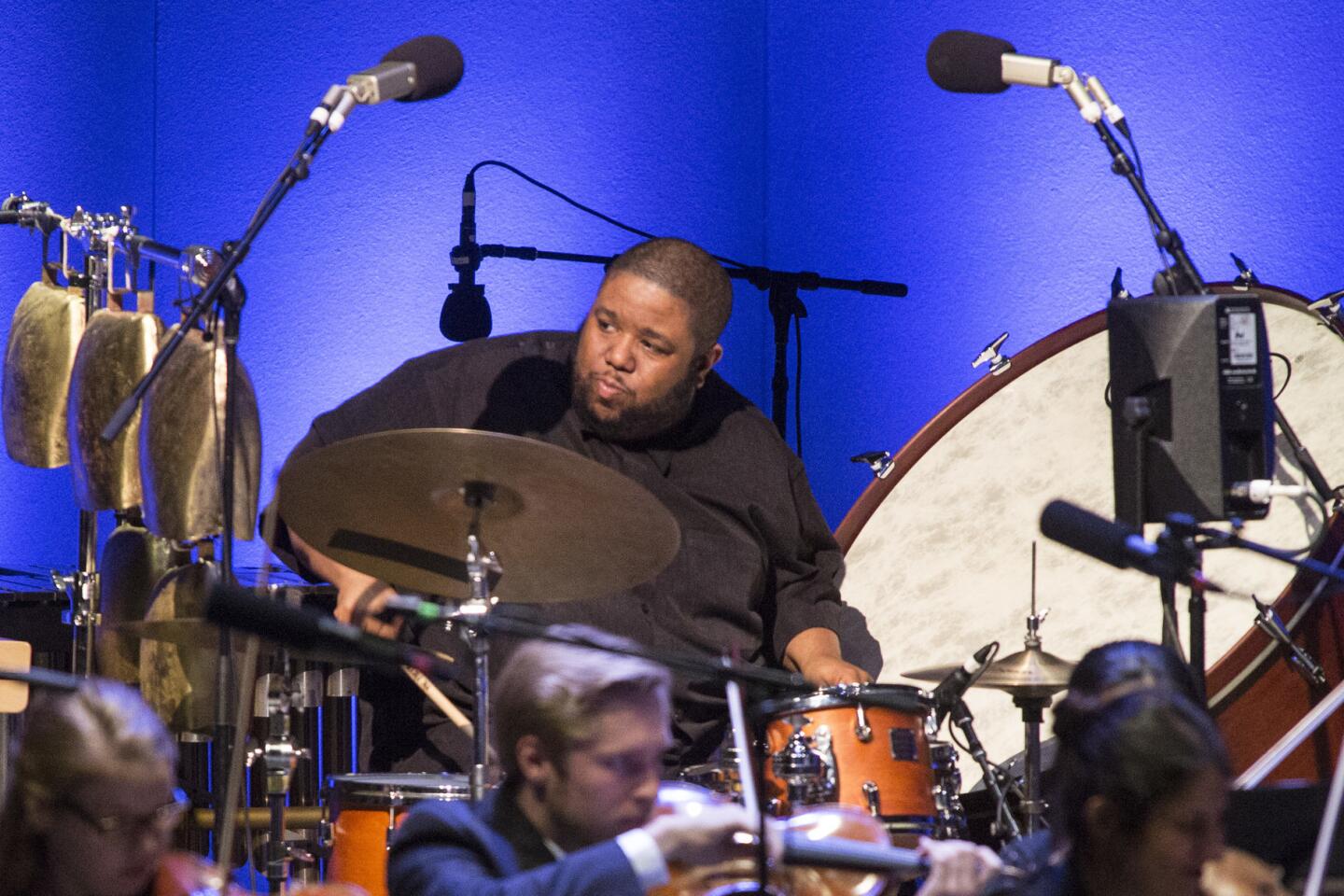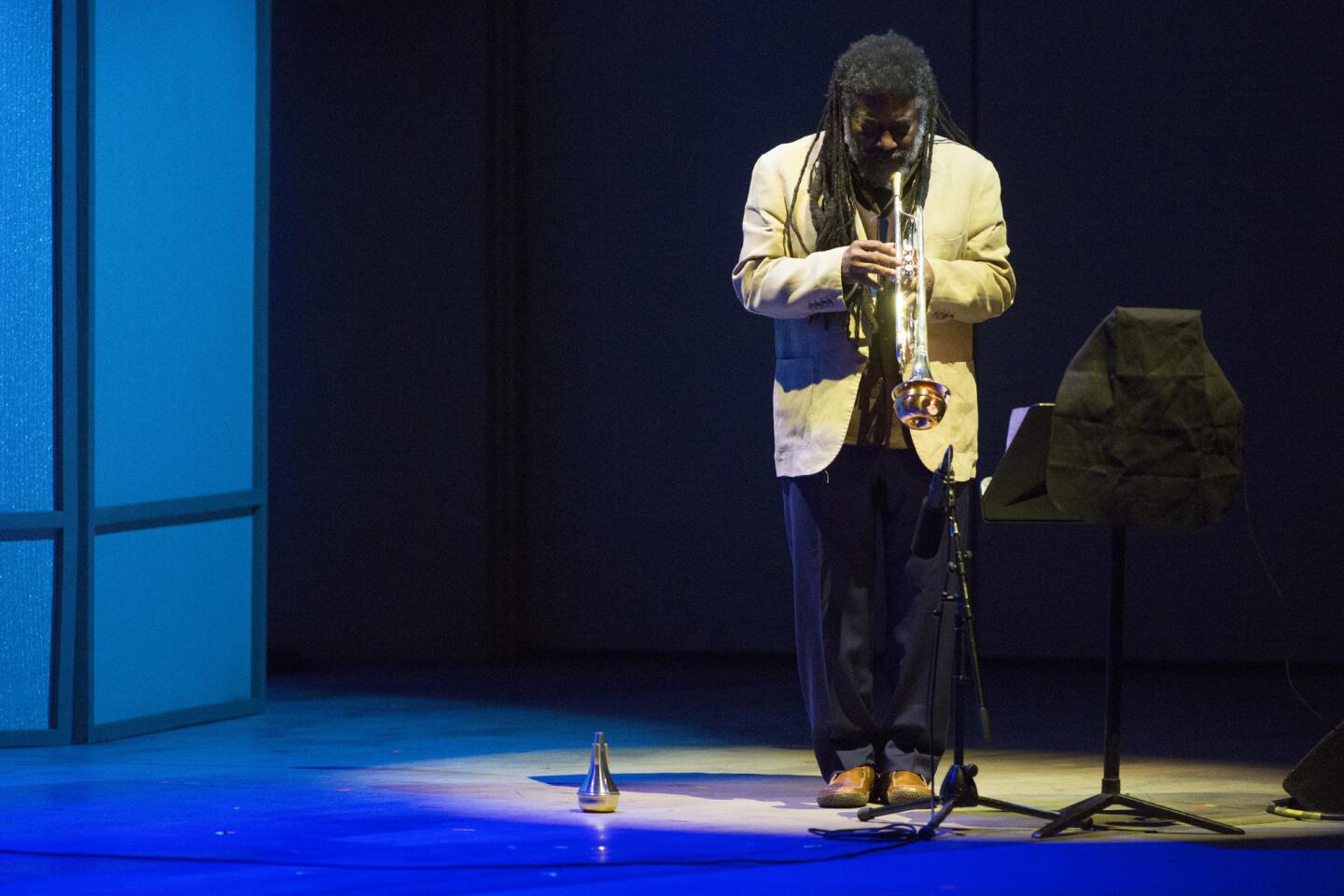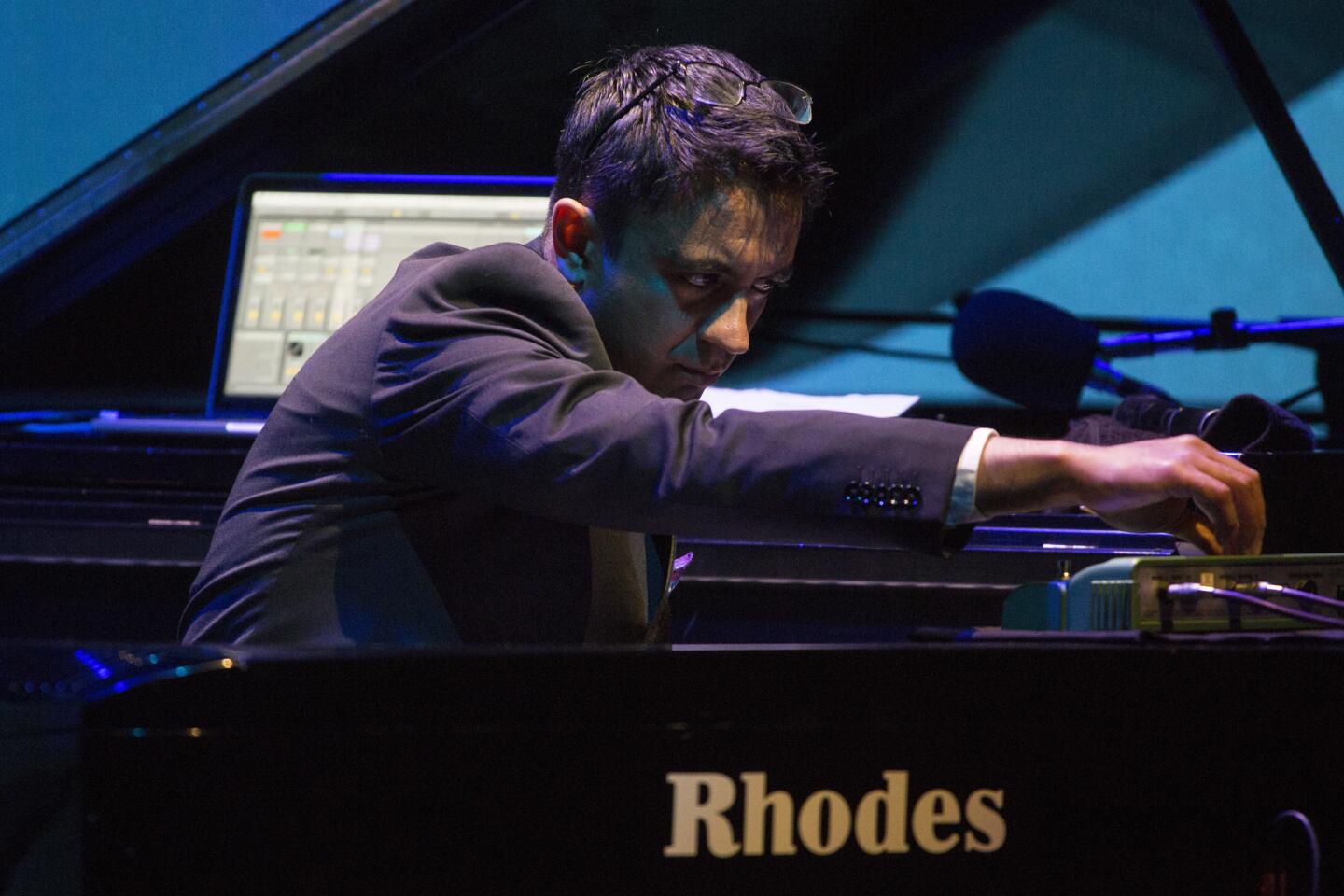Review: Vijay Iyer jazzes up the Ojai Music Festival
- Share via
Reporting from Ojai — The Ojai Music Festival began Thursday night by demonstrating three sides of Vijay Iyer. There are more, which the festival promises to unveil over the weekend. But three is a start.
Iyer is the first jazz musician to be the festival’s music director. He comes from a long line of jazz musicians who have moved out of the category, notably back to Gershwin and Ellington, but with roots as far back as the 19th century Gottschalk. Indeed identity has been so much an issue of jazz for so long that many have come to dislike the term, stuck with it we pretty much are.
In Iyer’s afternoon talk Thursday, the elegant, soft-spoken 45-year-old pianist and Harvard professor cattily noted that he found music critics to be homogenous, no doubt a term of some disparagement for this multitasker. There is probably some truth to it, and he seems to know of which he speaks. The pressure for homogeny has ever been an obstacle for progressive jazz musicians who attempt to collaborate with the classical world.
Where do you find common ground that doesn’t lead, as it usually does, to bland homogeny? If uncommon is more productive, how do you get away with it?
The evening began with the American premiere of “Emergence,” in which Iyer’s jazz trio interacts with a chamber ensemble. The world premiere of what you might say is Iyer’s classical violin concerto, “Trouble,” with Jennifer Koh as the dazzling soloist, followed. After intermission, Iyer joined the great West Coast trumpet player Wadada Leo Smith for an intimate, meditative set of very personal, very jazz duos.
In “Emergence,” which had its first performance in Poland last year, Iyer has more success than most have had in combining a jazz ensemble with an orchestra. That was to a considerable degree due to the trust his fine trio — on bass Stephan Crump and, significantly, on drums Tyshawn Sorey, himself a genre-busting composer of notable promise and an attraction for this year’s festival.
The heart of “Emergence,” which begins and ends with a pulsing piano heartbeat, is Iyer’s dialogue with Sorey. In their interaction, for instance, a commonplace melodic motif becomes less commonplace, whereas it remains commonplace in the orchestra’s hands.
Each member of the trio has a solo. Crump stays flashy; Iyer takes off from his luminously large tone into cautiously exploratory realms; Sorey throws caution to the winds of sonic imagination.
The chamber ensemble, composed of the crack International Contemporary Ensemble and the Oberlin Contemporary Music Ensemble, enjoyed the advantage of highly flexible non-dogmatic players and, in Steven Schick, a conductor whose strong suit is his acute rhythmic sense.
Still, the awkwardness of orchestra and jazz ensemble can never be overcome. Iyer gets away with a certain amount of interaction between big band and trio, but the big band is simply not as interesting in a jazz context as are the jazz players, so it must always serve as either orchestral support or foil.
Although Iyer says that “Trouble” is not a programmatic concerto, it takes its title from U.S. Rep. John Lewis’ explanation of “good trouble” and “necessary trouble” as strategies for the civil rights movement. Beyond that, though, little can be said, since the half-hour score has six movements with descriptive, but unexplained, titles.
The prelude, “Erasure,” begins like “Emergence,” by getting into a groove — here Koh and droning orchestral flute. Each movement has its mood and style. “Normale” is a Minimalist elaboration of a phrase that sounds like it could have come from Terry Riley’s “In C.” Later in the concerto there is a repetitive elaboration of a downward scale more in the manner of Philip Glass.
Iyer writes in the program notes that he rejects the concerto cliché of individual against the masses. But the fact is he clearly recognizes and he clearly relishes writing for a remarkable individual.
The show belongs to Koh, whether playing soulful melody, making the raspy scraping sound of strings into poetry, or just tossing off plain, fabulous old-fashioned virtuosity. Next to her, the orchestra, sorry to say, sounds homogenous. Not that the players are critics, but they’re not equals either.
Nor really are Iyer and Smith, who played the seven numbers of “A Cosmic Rhythm With Each Stroke,” their luminous recent ECM recording. Smith stood on one side of the stage, never looking up, getting to what is now the reductive essence of his once wild side. He demands deep listening — the taking of each utterance, each sound, having immediate expression but ineffable meaning.
Switching between grand piano and electric, Iyer, 30 years Smith’s junior, seemed in this context like the kind of acolyte whose own brilliance brings forth a wisdom in his old master. Once more, issues of identity and equality were too interesting to be resolved, because Smith was, on his own, simply too engrossing for that. He was too engrossing, period.
At the end of the inspired 40-minute set, the trumpet player collapsed in Iyer’s arms as they hugged. Smith had become dehydrated and was rushed to the hospital. The Friday report was that he was to be released and is fine.
MORE ARTS:
Interview: Vijay Iyer on the Ojai Music Festival
‘The Other Mozart’? Her name was Maria Anna, and she dazzlingly comes to life onstage
Frank Lloyd Wright at 150: Why his Los Angeles houses deserve a closer look
More to Read
The biggest entertainment stories
Get our big stories about Hollywood, film, television, music, arts, culture and more right in your inbox as soon as they publish.
You may occasionally receive promotional content from the Los Angeles Times.
